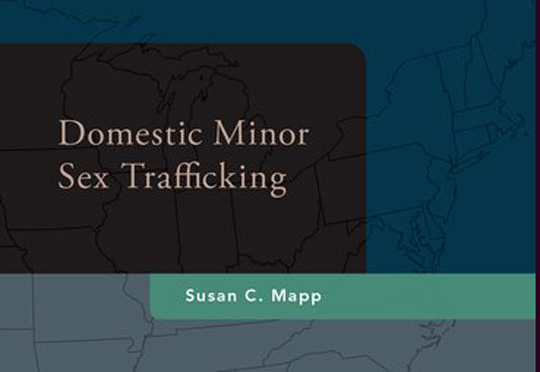 In 2006, truckers at a Harrisburg truck stop noticed girls in provocative clothing running down the rows. A police investigation found that the truck stop was a hub for sex trafficking, with girls as young as 13 involved in a life of prostitution. A decade after Harrisburg truckers helped to break up that human trafficking ring, researchers continue working to find ways to put a stop to the crime.
In 2006, truckers at a Harrisburg truck stop noticed girls in provocative clothing running down the rows. A police investigation found that the truck stop was a hub for sex trafficking, with girls as young as 13 involved in a life of prostitution. A decade after Harrisburg truckers helped to break up that human trafficking ring, researchers continue working to find ways to put a stop to the crime.
Susan Mapp, a professor of social work at Elizabethtown College, has studied and taught courses on human trafficking for more than 10 years. According to her, misconceptions about human trafficking are abundant. “Most of the media attention is either inaccurate in what it portrays, or it portrays only one specific type of human trafficking,” she said.
Mapp’s recent research, “Local Law Enforcement Officers’ Knowledge of Human Trafficking: Ability to Define, Identify, and Assist,” focuses on assessing the ability of police officers to recognize and respond to human trafficking.
We need to have the skills to identify those who might be in a situation of trafficking.”
According to the professor, officers often rely on media perceptions of human trafficking. She found that local officers were often aware of their lack of information, but when asked to put human trafficking into their own words, many replied, simply, “the trafficking of humans.”
“If they aren’t required to learn this, but are charged with being able to identify this crime, where are they getting their information?” Mapp asked. “What is the quality? Do they feel able to apply it?”
Mapp conducted the research with E-town students Jessica Juhnke ’12, Madeleine D’Almeida ’14 and Emily Hornung ’16.
Juhnke started the research in 2012, when she returned from a semester abroad and began an honors project. With Mapp’s guidance, Juhnke developed and conducted original preliminary research. The professor and students surveyed five local police departments on trafficking knowledge; Mapp then surveyed urban police departments along with D’Almeida and Hornung.
Mapp introduces her students to human trafficking research in various classes, including macro social work and an introductory social work course. Occasionally, she teaches an international social work course that includes a unit on human trafficking.
It is important to educate future social workers about these issues, she said. They are more likely than others to come across trafficked people. “We need to have the skills to identify those who might be in a situation of trafficking,” Mapp said. Foster parents, teachers and flight attendants, among others, are all learning how to recognize and handle a situation involving human trafficking.

